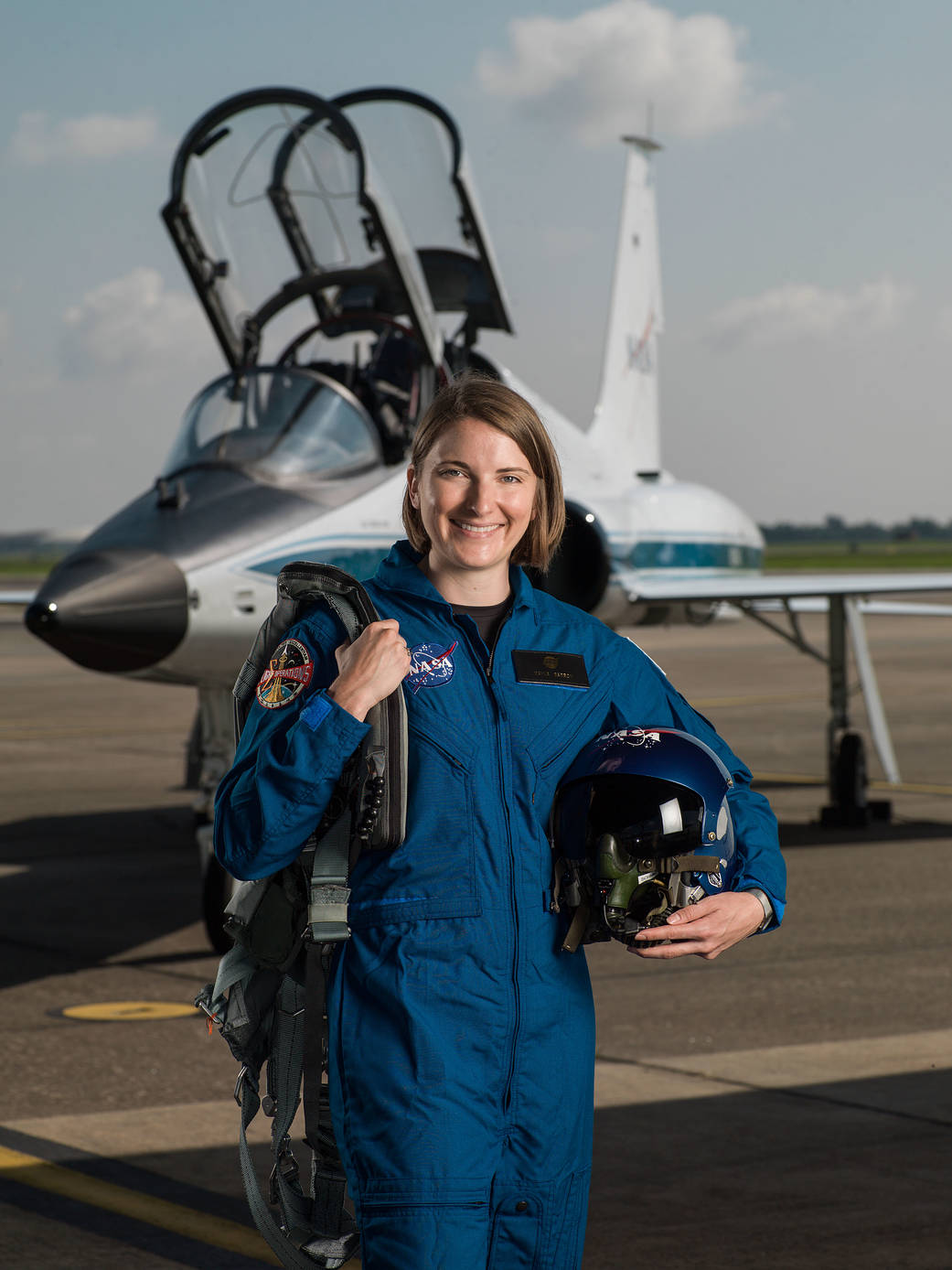
Kayla Barron is selected to join NASA's 2017 Astronaut Candidate Class.
Professionally, my experience as a Gates Cambridge Scholar played an important role in my development as an engineer and a leader. Personally, the experience was foundational, and I continue to be enriched by the Gates Community.
Kayla Barron
Gates Cambridge Scholar Kayla Barron has been selected by NASA to join the 2017 Astronaut Candidate Class and will report for duty in August 2017.
Kayla [2010], who did an MPhil in Nuclear Engineering at the University of Cambridge after doing her undergraduate training at the US Naval Academy, worked as a Submarine Warfare Officer and was a member of the first class of women commissioned into the submarine community.
Born in Pocatello, Idaho, Kayla [nee Sax] is married to fellow Gates Cambridge Scholar Tom Barron [2010].
At the Naval Academy Kayla was part of the Trident Scholar Programme and worked on a research project which focused on the development of a more affordable, low-powered, extremely sensitive neutron detection system. At Cambridge she took this research further, with a focus on alternative energy sources, particularly nuclear power. After completing her master's, Kayla attended the US Navy's nuclear power and submarine officer training before being assigned to the USS Maine, an Ohio-class ballistic missile submarine homeported in Bangor, Washington. Barron qualified as a submarine warfare officer and completed three strategic deterrent patrols while serving as a division officer aboard the Maine.
When she was selected by NASA, Barron was serving as the Flag Aide to the Superintendent of the US Naval Academy. She will received two years of training as an Astronaut Candidate. Upon completion, she will be assigned technical duties in the Astronaut Office while she awaits a flight assignment.
Kayla said: "Professionally, my experience as a Gates Cambridge Scholar played an important role in my development as an engineer and a leader. Personally, the experience was foundational, and I continue to be enriched by the Gates Community. I am excited and humbled to have been selected for this opportunity and am looking forward to being a member NASA's phenomenal team."
Kayla Barron
- Alumni
- United States
- 2010 MPhil Engineering
- Peterhouse
I graduated from the U.S. Naval Academy in May 2010 with a B.S. in Systems Engineering. Driven by a passion for curbing the effects of anthropogenic climate change while meeting growing global energy demands, I sat for an MPhil in Nuclear Engineering at Cambridge, conducting fuel cycle research on a thorium reactor concept known as the Accelerator Driven Subcritical Reactor. I am currently serving as a submarine warfare officer in the U.S. Navy.

Thomas Barron
- Alumni
- United States
- 2010 MPhil African Studies
- St John's College












